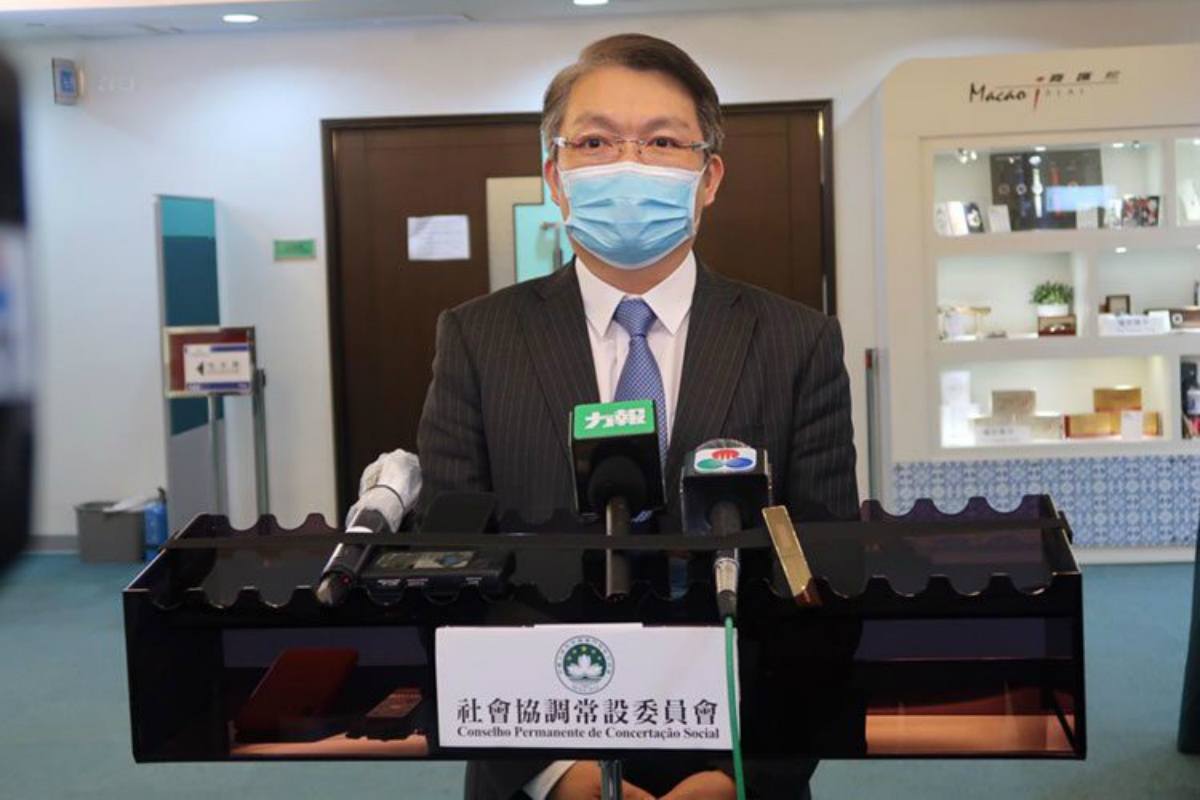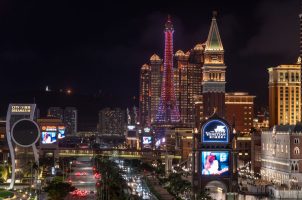Macau Government Halves Forecast Casino Gaming Tax Receipts in 2020 Budget
Posted on: May 11, 2020, 09:22h.
Last updated on: May 11, 2020, 11:10h.
The Macau Financial Services Bureau has slashed its projected tax revenue from casino gaming in half for 2020 due to the ongoing COVID-19 pandemic.

The enclave’s chief tax agency has reduced its forecast for receipts from gaming revenue from MOP98.228 billion ($12.31 billion) to MOP49.977 billion ($6.26 billion).
The drastic cut of more than 49 percent in the revenue the Chinese Special Administrative Region (SAR) planned on receiving from its six licensed casino operators is a result of the resorts operating in greatly reduced capabilities.
Macau taxes gross gaming revenue (GGR) at 35 percent. That elevates to an effective rate of 39 percent for five of the concession-holders by way of a 1.6 percent add-on tax earmarked for the Macau Foundation, and 2.4 percent tax allocated for the enclave’s Infrastructure, Tourism, and Social Security Fund.
SJM Holdings held a monopoly on gaming in Macau for nearly 40 years before the region was returned to Chinese control in 1999. The enclave in 2002 welcomed in five new commercial casino operators. In a small concession to the gaming empire owned by billionaire Stanley Ho, SJM is taxed slightly less at an effective rate of 38 percent.
No End in Sight
Macau has fared well in the global pandemic, especially considering the coronavirus originated in China. To date, the World Health Organization (WHO) says Macau has just 45 confirmed cases. No one has died from the respiratory disease.
Macau remains isolated from the outside world, the enclave government banning all incoming travelers, the exceptions being people arriving from mainland China, Hong Kong, and Taiwan.
Conditions are in place on those arriving from the three permitted areas. Access will be denied to anyone who has visited a foreign country within 14 days of arriving in Macau, and those coming from Taiwan and Hong Kong are required to stay in designated hotels for 14 days for medical observation.
Macau is requiring people to undergo an exhaustive medical examination that lasts as long as eight hours. Even people who haven’t traveled internationally and are arriving from the mainland must take the tests.
Taxing Taxes
Macau’s casinos are responsible for almost 90 percent of the region’s government income. Through April, GGR totals $3.91 billion – a 68.7 percent plunge.
Both local officials and Beijing have been pushing for Macau to lessen its dependency on gaming. In a recent note, Fitch Ratings said that while the SAR’s credit rating remains “AA,” the agency “expects Macau to experience a much deeper economic contraction in 2020 than other ‘AA’ rated peers whose economies are less dependent on tourism.”
Fitch is projecting that Macau’s economy will shrink nearly a quarter in 2020, and GGR tumble some 40 percent. “Macau’s overwhelming dependence on gaming tourism constitutes one of its principal rating constraints,” the firm added.
Beijing is assisting Macau in creating its own yuan-based stock market exchange, which would ideally bring in nongaming businesses. China considers helping with the formation a “birthday gift” to the SAR that celebrated its 20th anniversary of being a SAR of the People’s Republic in December.
Related News Articles
Sands Rebound Needs Two More Years, Says Moody’s
Macau GGR Could Perk Up as Soon as Early 2023
MGM Japan Casino Spend Could Be $2.5B, Says S&P
Most Popular
VEGAS MYTHS BUSTED: Golden Gate is the Oldest Casino in Vegas
Las Vegas Overstated F1 Race’s Vegas Impact — Report
Most Commented
-
End of the Line for Las Vegas Monorail
— April 5, 2024 — 90 Comments -
Mega Millions Reportedly Mulling Substantial Ticket Price Increase
— April 16, 2024 — 6 Comments -
Long Island Casino Opponents Love New York Licensing Delays
— March 27, 2024 — 5 Comments
















No comments yet